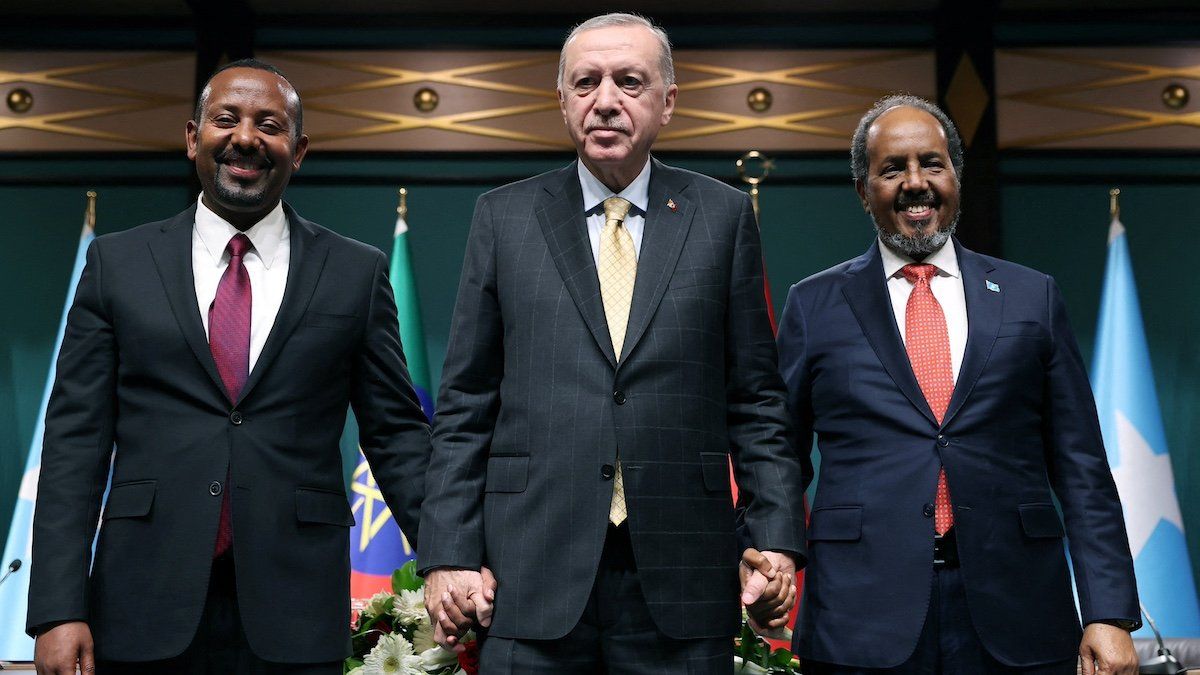Ethiopian President Abiy Ahmed and Somali President Hassan Sheikh Mohamud announced a critical agreement to end a yearlong dispute over Ethiopia’s access to the Arabian Sea. The leaders announced the deal in Ankara after marathon talks mediated by Turkish President Recep Tayyip Erdoğan, whois increasingly emerging as a key player in the Horn of Africa.
What’s the conflict all about? Ethiopia has been the most populous landlocked country in the world since Eritrea broke away in 1993, and the lack of a major seaport has held back development. In January, Ethiopia signed a deal to lease a port from a breakaway region in Somalia, Somaliland, in exchange for recognizing its independence. In response, Somalia threatened to expel Ethiopian troops that are in the country to fight al-Shabab terrorists, and some feared the conflict could escalate into an echo of the devastating 1977-78 Ogaden War.
Why is Turkey involved? Ankara has deep ties to both sides in the conflict and an abiding interest in keeping the peace between them. Turkey’s largest overseas military base is in Somalia, where Turkish troops have trained thousands of their Somali peers. Turkey also backed the Ethiopian government during the 2020-22 Tigray war by providing feared Bayraktar drones.
“The agreement will help make Turkey into an even more relevant power in the region, with Ankara pitching itself as a security partner for African countries,” says Eurasia Group expert Emre Peker.
Turkish businesses have invested over $2 billion in Ethiopia as well, a figure surpassed only by China.
“Aside from expanding its diplomatic and political clout in Africa, the deal will also help Turkey build more commercial inroads in the region,” says Peker. “Ethiopian access to Somali ports could facilitate more trade, and Turkish businesses will benefit from potential preferential treatment on marquee infrastructure projects.”
What now? Representatives will meet again in February for “technical talks” that are meant to hammer out the details of port access.
